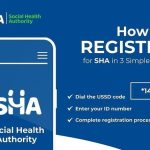Private university students lead in alcohol consumption as public universities top in muguka usage – NACADA
A recent report on drug prevalence in universities in Kenya by the National Authority for the Campaign Against Drugs and Alcohol Abuse (NACADA) has revealed that private university students lead in the consumption of drugs and substances as compared to their public university counterparts.
In the research which analysed statements provided by at least 15,678 respondents in the eight regions of Kenya, 35 per cent of private university students admitted to have used at least one drug in the last one month against 22 per cent in public institutions.
The report equally revealed that while the private universities topped in the usage of drugs, the public university students emerged first in the use of a variant of khat called muguka.
“Findings on the past-month use of individual drugs showed that alcohol, tobacco, khat, and cannabis were the most widely used substances of abuse by university students in Kenya,” the report read in part.
Khat (muguka &miraa) usage
“1 in every 8 students in public universities (12.0%) and 1 in every 18 students in private universities (5.6%) had used at least one type of khat in the past month.”
The report equally indicated that 23 % of private university students had used alcohol in the past month while only 16% of their counterparts in public universities had used liquor.
Out of this statistic, the report concluded that male students reported the most abuse of alcohol at 21% while 15% of users of alcohol were female respondents.
Additionally, private university students were found to be the majority consumers of cigarettes in its various forms at 15.9 % against public university students at 10.3 %.
Interestingly, the public universities led with alcohol addiction problems at 9.5 per cent against the same challenges at 8.3 per cent in private universities.

Of the 15,678 respondents questioned, 54% were male students, 45 per cent were female and at least 94 respondents refused to identify with any gender.
Call for action
NACADA board chairperson Stephen Mairori underscored the urgent need to curb the growing drug problem in universities, noting that it was not only a public health threat but could also undermine the nation’s development efforts.
“As NACADA, we are driven by the urgent need to safeguard our nation’s future by ensuring that our youth—especially those in institutions of higher learning—are protected from the dangers of drugs and substance abuse. The challenge of drug abuse is not just a threat to public health—it is an obstacle to Kenya’s development aspirations,” Mairori said.
“. We are committed to ensuring that the findings and recommendations from this report inform our policies, programs, and interventions targeting university students. This is not just about statistics—it is about lives, dreams, and the future of our nation.”










